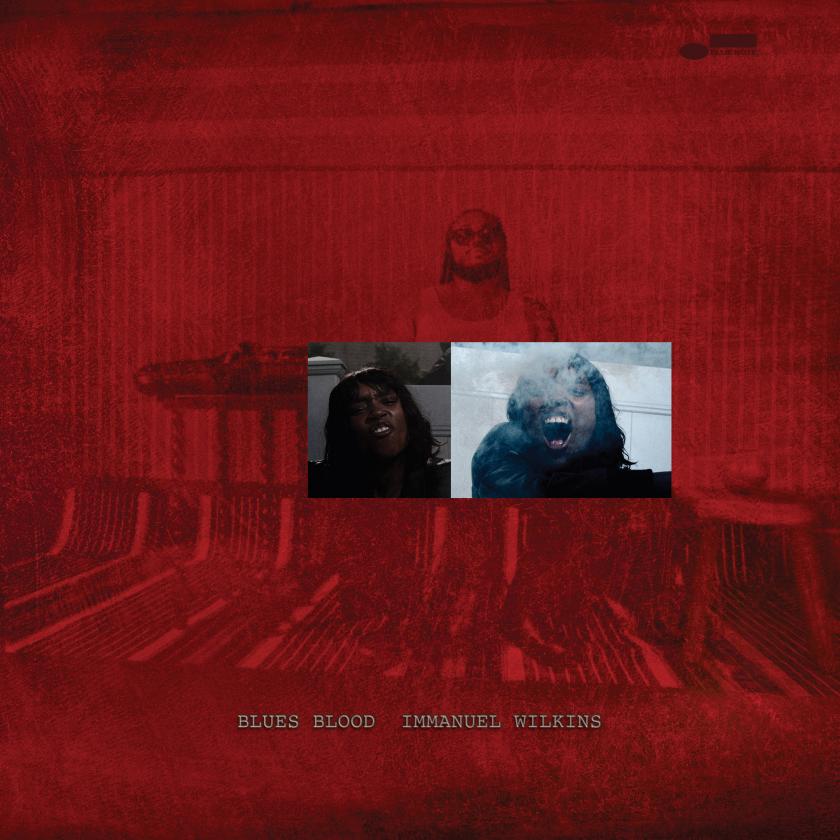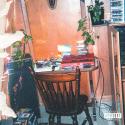Immanuel Wilkins’s third Blue Note Album – Blues Blood – has a big concept behind it. According to the album blurb, we are offered “a multimedia performance about the legacies of our ancestors and the bloodlines connecting us...”. It features “distinctive voices tapping into different aspects of heritage”… and "meals are cooked onstage during the live performance.” The basic idea behind it is that the healing properties of music can be applied to dealing with historic trauma.
The album is the result of a commission from and a residency at Roulette Intermedium in Brooklyn, an organisation with a mission to support the “new + adventurous”, and Wilkins has certainly attempted to live up to that objective.
And therein lies the problem: all this ambition and teleological responsibility starts to feel like a heavy burden on the shoulders of a 27-year-old. When Wilkins originally moved to New York, he was very driven by an imperative to be in the orbit of Wynton Marsalis, and is clearly not averse to a career direction in which he assumes the mantle of a public intellectual in his own right. Marsalis creates lengthy works which are driven by an agenda of social justice, and the Roulette commission has given Wilkins the opportunity to take a step in that direction. The saxophonist is deeply religious, and Blues Blood has a strong leaning towards all kinds of religiously inspired and sacred chanting. The result is an album with a diffuse identity, particularly when compared with the much tighter Omega. It is as if Wilkins has wanted to multiply different perspectives for the sake of it, to allow the many guests to dictate the vibe, notably the Tamil vocalist Ganavya’s appearance on “Everything”. Inevitably some of these adventures are going to be more authentic to Wilkins’s own vision than others, but the effect is one of having given everything a try-out in order to see what sticks.
From my listening I had an intriguing feeling that there might be more musical unity there than we are being told about, that perhaps some detailed work has gone in to the thematic linking and unifying of the compositional and musical motifs, but album promotional material (maybe there is more than I have been able to acquire) doesn’t allude to anything like this which would help the listener to understand that.
There are some tracks which felt, to say the least, inconsequential: “Moshpit” is a repetitively cycled groove from the piano, plus some thrashy drumming, and Wilkins mostly playing long tones. Between the time it fades in at the beginning and fades out at the end very little has happened. And “Apparition” is floaty, formless and pulseless. The piano has to do the heavy lifting again with endless iterations of the same tremolando chord, and interjections from various electronic and metallic sounds, all that voices intoning words you can't actually hear. There are more successful moments: Cecile McLorin Salvant brings distinction and distinctiveness to everything she does, and Wilkins’s setting of Alyssa McBroom’s lyrics in "Dark Eyes Smile" allow her to give a hypnotic grace to lines like: “In my best and worst times/ my reflection will resemble you.”
“Adventurous programming” has become an end in itself, a totem through which labels and festival directors can prove their mettle. Blues Blood shows what happens when it goes wrong.
- Blues Blood is released today 11 October on Blue Note
- More album reviews from theartsdesk















Add comment